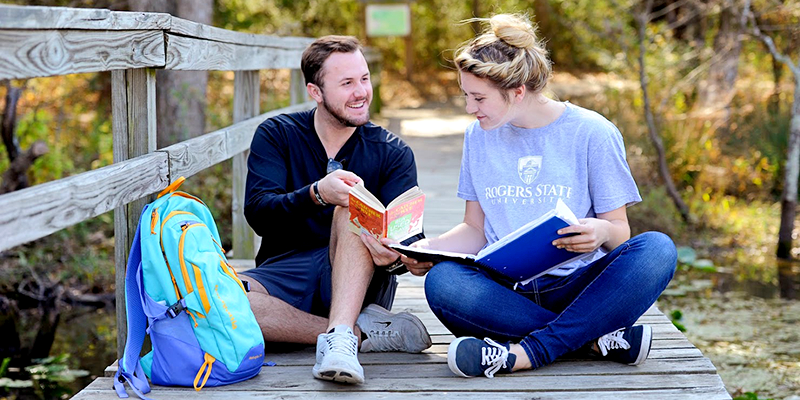
Tips for Faculty & Staff
This information is designed to help you know how to identify, respond to, and refer distressed students.
General Signs of Distress
- Decline in work or academic performance
- Disruptive or disturbing behaviors
- Changes in appearance, behavior or weight
- Concerning comments (e-mail, papers, other writings)
- Observations of sadness, anxiety, anger and/or significant mood change
- Signs of a drug or alcohol problem
- Social isolation or other social problems
Signs of a Crisis Situation
These behaviors usually show that a person is in crisis and needs emergency care:
- Talk of suicide directly or indirectly
- Highly disruptive behavior (hostility, aggression, etc.)
- Loss of contact with reality (seeing/hearing things that are not there, beliefs or actions at odds with reality)
- Inability to meet one’s basic needs
- Homicidal threat
What to do when Someone is in Distress
- Stay calm, listen attentively, show your support and express your desire to help
- Reassure the individual that help is available
- Ask directly if the person plans to harm him/her self or others
- If the answer is no
- Encourage the person to go to Counseling Services
- Take the additional step of giving them the phone number
- Let them know that services are free and not tied into their academic records
- If the answer to harm to self or others is yes
- During business hours, offer to walk the person to Counseling Services for a session with the counselor. If they refuse, reassure them that you care about them and want to make sure they are safe. Remember that if they won’t seek help and you feel they are a danger to themselves or others, you should call 911*
- After business hours (and if the student agrees to seeking help), you may call the Grand Lake Mental Health Center Crisis Line at 1-800-722-3611. The student will be able to talk with a mental health professional immediately to assess their situation.
* If on the Claremore campus, please call 918-343-7624
What NOT to do When Someone is in Distress
- Do not allow yourself to be sworn to secrecy
- Do not leave the person alone if you believe there is imminent risk
- Do not react with shock or disdain
- Do not try to counsel the person yourself
When to Make a Referral
Even though a student asks you for help with a problem and you are willing to help, there are circumstances when you should suggest other resources:
- You are not comfortable in handling the situation
- The help necessary is not your expertise
- Personality differences may interfere with your ability to help
- You know the individual personally (friend, neighbor, coworker) and think you may not be objective enough to help
- The individual is reluctant to discuss the situation with you
- There is an active crisis
How to Make a Referral
- Share the limits of your expertise and/or objectivity
- Let the person know you think he/she could benefit from the help and expertise of a professional
- Assure him/her that many students seek help over the course of their college careers
- Try to help the individual know what to expect if he/she follows through on the referral
Consultation is Available
If you have concerns about someone, contact Counseling Services and ask for immediate consultation. Ways consultation can help include:
- Assessing the seriousness of the situation
- Suggesting potential resources
- Finding the best way to make a referral
- Clarifying your own feelings about the person in distress and the situation
- Collaboration with other university professionals
Counseling Services: Currently enrolled RSU students may utilize the professional services offered by Counseling Services. Individuals are encouraged to make appointments for themselves if possible. In non-emergency situations, an initial appointment is usually scheduled within one week. In crisis situations, however, immediate services will be provided. After hours, the Claremore Campus Police (918-343-7624) or Grand Lake Mental Health Center Crisis Line (1-800-722-3611) should be contacted. At the first visit, information and consent forms will be filled out prior to the session. During the first appointment, the counselor will begin to assess the individual’s needs and determine the most effective ways to help. Options may include counseling or a referral to a community resource.
In an Emergency: Try to stay calm. If a student or any person poses a direct threat to themselves or others, immediately call 911*. If a student is in distress, is disruptive or displays bizarre or irrational behavior but does not pose an immediate threat to themselves or others, try to have someone stay with the student while calling Counseling Services (Monday-Friday, 8 a.m. to 5 p.m.) at (918) 343-7845 to request emergency consultation, evaluation, treatment and/or referral. * If on the Claremore campus, please call ext. 7624.
Additional Resources: The following hotlines are available for after-hours consultation services:
- Claremore Campus Police: ext. 7624
- Grand Lake Mental Health Center Crisis Line: 1-800-722-3611
- National Suicide Prevention Lifeline: 1-800-273-8255 / 1-800-799-4889 TTY
